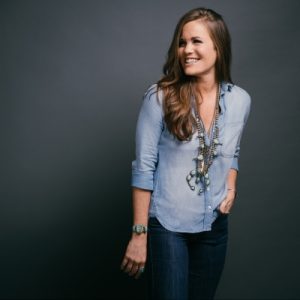 It’s only a matter of time until Hollywood snaps up the story of how singer-songwriter Bonnie Bishop connected with Dave Cobb, one of the hottest producers in the business, to unlock her inner soul singer and record the best album of her career: “Ain’t Who I Was”.
It’s only a matter of time until Hollywood snaps up the story of how singer-songwriter Bonnie Bishop connected with Dave Cobb, one of the hottest producers in the business, to unlock her inner soul singer and record the best album of her career: “Ain’t Who I Was”.
Even though Bishop can barely believe it herself, it’s a story that will need no dramatic embellishment, because every twist of fate — and faith — is absolutely true.
Before landing with Cobb, whose credits include Jason Isbell, Chris Stapleton and Sturgill Simpson, Bishop had thrown in the towel on her country-leaning career, too frustrated, beat-up and broke to go on after 13 years, five albums and one failed marriage. It landed on the rag pile despite monogramming by her idol, Bonnie Raitt, who recorded a Bishop/Big Al Anderson co-write on her comeback album, “Slipstream.” The song, “Not Cause I Wanted To,” topped the New York Times’ year-end best-of list, then “Slipstream” won 2012’s Best Americana Album Grammy. Bishop also popped onto iTunes’ country chart in 2013 with a song delivered by Connie Britton, the star of ABC-TV’s hit series “Nashville.”
But a girl can only live so long on accolades and exposure. After spending 200 nights a year on the road — loading her own gear, running her own sound and sleeping in her van — and still not earning enough to afford Christmas presents for her family, Bishop knew she’d hit a dead end.
But before leaving Nashville, she called Thirty Tigers co-founder David Macias, whose multi-faceted entertainment company handles Lucinda Williams, Patty Griffin, Simpson and Isbell — whose Cobb-produced release won 2015’s Best Americana Album Grammy.
Macias sent Cobb some demos. Cobb invited her to lunch. At the time, he was working with Stapleton, recording what would become 2015’s Best Country Album Grammy winner and 2016’s ACM Album of the Year. Bishop flew to Nashville to meet him. Cobb told her she should be singing soul, not country, and that he’d been wanting to record a soul album.
She was thrilled. As a child in Houston, she’d heard her surgeon father, a former musician, playing blues piano, and her cellist mother spinning Motown singles. After they split, her mother married football coach Jackie Sherrill, who took a coaching job at Mississippi State.
Cobb picked six songs from her list of 36, including six she co-wrote, and they found four more.
“The record is called ‘Ain’t Who I Was’ because I’m not the same person I was, personally or musically,” says Bishop. “I was at a point where I just didn’t know anymore. I didn’t even have a vision, and this amazing producer came alongside me and believed in me and pulled my voice back out and made me get back up and sing.”
“I feel like I’m truly living a fairy tale. All I do on a daily basis now is get up and say thank-you, Jesus, that this is all going on, and show me how to show up today. “Dreams are lifetime visions,” Bishop says wisely. “And life is valleys and mountains. And if you can accept that, you’ll be fine.”